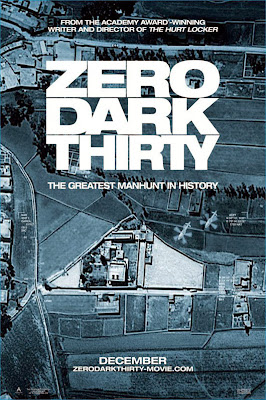Guardians of the Galaxy - Fucking loved it. So much fun. Probably my favorite Marvel movie. Maybe my favorite comic book movie. It was obvious to anyone paying attention beforehand, but Chris Pratt is going to be a fucking star.
Calvary - Just saw it. Brendan Gleeson was great. The supporting cast featuring Chris O'Dowd, Aiden Gillen, Dylan Moran, Kelly Reilly, Isaach de Bankole, and Killian Scott was really great. It's weird to say, but I think I might prefer writer/director John Michael McDonagh's works (this and The Guard) thus far to his brother's (Martin, who directed In Bruges and Seven Psychopaths).
Her - Liked it. Probably short of loving it.
22 Jump Street - Really funny. Not quite as good as the first one, but still a ton of fun.
The Lego Movie - Loved it.
Veronica Mars - Stayed true to the series. Great to have old friends back. It's been on the heavy rotation on HBO, and I watch it pretty much every time I see that it's on.
12 O'Clock Boys - Went to this months and months ago. Great little documentary about kids on motorcycles in Baltimore.
Joe - David Gordon Green getting the good stuff out of Nicolas Cage. Strong turns by the supporting cast. Weird seeing people from around town in the flick.
Prince Avalanche - See, I told you I was way behind. David Gordon Green's modern homage to Waiting for Godot. I dug it. Last time I checked it was available on Netflix Instant.
Don Jon - I thought Joseph Gordon-Levitt's first foray into the world of directing was a strong one. Not perfect, but worth the watch on Netflix if you haven't seen it.
To the Wonder - It took me well over a year to write a word about it. I think I liked it more than most, though it's definitely Malick's worst film. Interesting thematic notes on modern man and his inability to adequately address the needs of woman. Not great, but with Malick, the beauty of the cinematography make it worth at least a cursory glance. A Sonic has never looked so beautiful.
This is the End - No idea why I never got around to writing about this one. I fucking loved it. Really funny. Loved each character's send up of the celebrity therein.
Before Midnight - Hard to watch those two in the throes of such an argument, but it was the real world version of what their lives would have been ten years after Before Sunset. Three films that work superbly together.
Boyhood - While we're on the subject of Richard Linklater, Boyhood seemed to me to be a film that's impossible not to like and admire. I don't know that it's the masterpiece that the reviews would have you believe. Conceptually it's brilliant and completely unique. The experience of seeing the film is powerful. Some of the philosophical wanking that Mason gets into in his teenage years borders on being irritating, though this could be because it hit closer to home than I'd like to have hit. We all have our baggage.
The Expendables 3 - I really liked Antonio Banderas in it. He was surprisingly funny. Ronda Rousey worked as well. Of the three, it's the least memorable. It was what it was trying to be, though.
Much Ado About Nothing - Totally pleasant movie-going experience.
Inside Llewyn Davis - A lot denser than I thought it was going to be. Had to go back and watch it a second time because the ending threw me for a complete loop. Mythology was playing a much larger part than I ever expected. Oscar Isaac was great. Hardly the best film of last year, but really damn good.
Upstream Color - Not for everyone by any means, but Shane Carruth is a director with VISION. Beautiful. Mad. Pig fetuses.
Chef - Nice passion project for Jon Favreau. It was refreshing to see him get back to his more independent roots.
Begin Again - I do like seeing music being made in a film. Obviously, it feels very similar to Once, which I loved but felt more organic than Begin Again did.
The Fault in Our Stars - Now I see what TSLF dug so much about the book. Very good. Very sad.
Edge of Tomorrow - You get to watch Tom Cruise die like 100 times.
Snowpiercer - Liked it. Didn't love it. Solid action flick.
The Great Beauty (La Grande Belleza) - Winner of this past year's best foreign film. Beautiful film-making. Cannot recommend this highly enough.
Only Lovers Left Alive - Liked it. Didn't love it.
X-Men: Days of Future Past - I wish Disney/Marvel could get these books back. Not terrible, but not that good either.
Captain America: Winter Soldier - Liked it significantly more than the first one. Of the standalone Avengers movies, it was better than all but maybe Iron Man and Iron Man 3 (which I think I'm in the minority on, but whatever).
Neighbors - Funny. Expected a bit more. Really liked Rose Byrne in it. Dave Franco and Zac Efron were funny.
The Grand Budapest Hotel - The most I've liked a Wes Anderson movie since Tenenbaums. The first time since then that it didn't seem like he was desperately seeking his father's approval. Wonderful.
Mistaken for Strangers - What, I'm not going to love a documentary about The National?
Walk of Shame - I like Elizabeth Banks. It was totally watchable though not entirely memorable.
The Act of Killing - Haunting. Powerful. Amazing.























